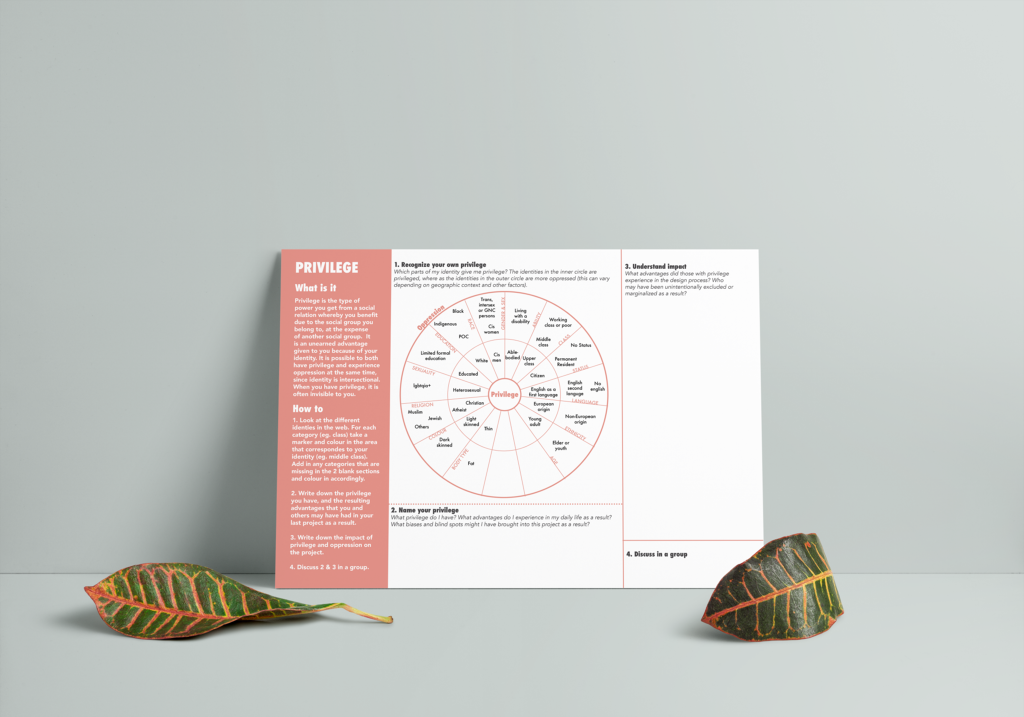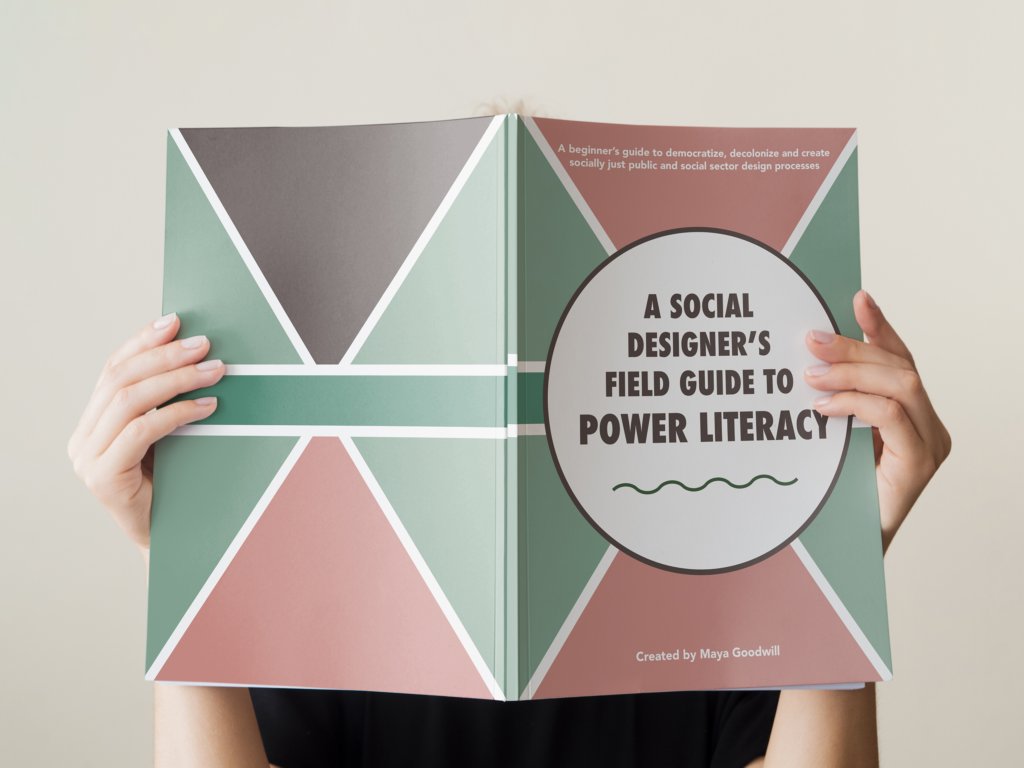Moving into the social and public sector, design is becoming increasingly complex and participatory. This is reflected in the greater diversity and interrelatedness of stakeholders and the wicked problems being addressed. However, although many designers have the intention to make design more participatory and equitable, they commonly lack an in-depth understanding of power, privilege, and the social structures (norms, roles, rules, assumptions, and beliefs) that uphold structural inequality. As a result, they often include harm and inequities in their work.
The Power Literacy framework and field guide was developed to support designers in building self-awareness of, sensitivity to, and understanding of the impact of power and systemic oppression in their design practice. Grounded in reflexivity, it helps designers build a holistic and shared understanding of power within their work, while pushing them to examine the role they play in reproducing inequity. As a result, they can use design as a tool to shift power by challenging inequities and the oppressive social structures that hold these in place.
The project was initiated in 2020 in collaboration with Kennisland, using an iterative and intuitive research and design process which mixed literature review, interviews, design research, community building and prototyping. This ongoing work is a tribute to the work of many others, including Indigenous First Nation Metis and Inuit communities that have been designing with principles of interconnectedness for thousands of years.
In recent years, the power literacy framework has been introduced in a number of different universities, organisations, public institutions and companies across North America and Europe. Maya is currently applying, adapting and evolving the framework and field guide in their role at The Moment, a Toronto based innovation and service design company. Reach out to Maya directly to help your team move towards a more equitable design practice.






